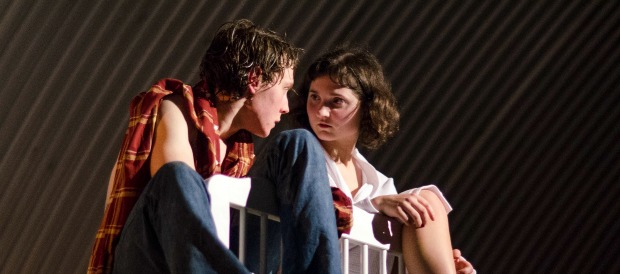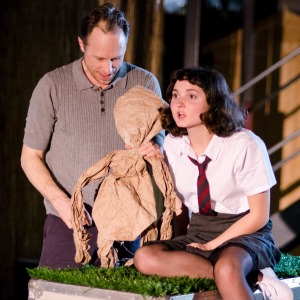You have no items in your cart. Want to get some nice things?
Go shopping
There are few writers who’ve shaped the future of the modern British novel as dramatically as Ian McEwan. By volume alone – 12 novels, two short story collections, two children’s books, four original screenplays, a play, an operetta and a libretto – he far outshines many of his contemporaries. When you consider how many of those books have become modern classics, he sits in a very elite group indeed.
The production of The Cement Garden at this year’s VAULT Festival is a timely reminder of McEwan’s taut, twisted roots. With his recent novels he sometimes seems to be targeting book clubs ahead of literature critics. Not that there’s anything wrong with that – readers are to be welcomed wherever they’re found – but even McEwan admits that he’s lost some of his edginess. In a recent interview with The Guardian, McEwan stated that: “I’m no longer interested in a kind of sexual gothic. But you can’t in your mid-60s write as if you’re 25.”
David Aula and Jimmy Osborne’s adaptation of The Cement Garden brings his early sexual gothic back to life. Their source material was slim (the novel runs to 127 pages) so much of the work was already done for them. There are very few scenes that have been left out, although some are run into each other for the sake of narrative brevity. What’s more noticeable is how much the sexuality of the novel has been toned down. McEwan’s book contains scenes of masturbation and incest, and these are still present on the stage – but the nudity has vanished. Jack (George MacKay) still self-abuses copiously, starting before the first scene, as the audience take their seats… but he does so with his trousers on. Similarly, when Jack and Julie (Ruby Bentall) carry out their sexual experiments on younger sister Sue (Georgia Clarke-Day) they’re innocent by comparison: their explorations are seen only in shadow, across clean white sheets. It may seem that a stage adaptation of The Cement Garden would be unbearably graphic and sexually-charged, but in fact the reverse is true. McEwan’s sexual gothic felt dirtier when it took place solely in our heads.
The two-tier set allows for some interesting use of space, and the Vaults are in many ways the perfect setting for such a claustrophobic story. Even the sound of trains rumbling overhead only adds to the sense of poverty and seclusion. The outside world surrounding the house – McEwan’s “few terraced houses… cleared to make way for four twenty-storey tower blocks” – is almost unmentioned as Aula and Osbourne focus on the family’s sense of isolation, although curiously this sometimes detracts from the claustrophobia rather than adds to it. With no point of comparison outside their walls, the family dynamic almost starts to seem normal.

There are other subtle twists made to the novel’s story too, often to overcome the specific challenges of putting McEwan’s novel on the stage. Younger brother Tom is played by David Annen as an older version of himself, looking back on the events of the mid-70s. Annen carries and manipulates a simplistic paper puppet of his younger self, and it’s a testament to his acting abilities that the audience soon forgets this dramatic device, accepting him as the youngest sibling. Commander Hunt – the hero of the sci-fi novel that Sue gives Jack for his birthday – also steps out of the shadows to represent a fragment of Jack’s psyche, and the role model that he doesn’t have. Christopher Webster brings a physical humour to the role that is much needed in such a dark tale, although his brief turn as their father feels misplaced and far lighter than the abusive, brooding presence of the novel.
Bringing a well-known – and well-respected – novel to the stage is never easy. It says something that Aula, Osborne and their cast fully engage our attention for close to two hours, exploring the same dark pathways that Ian McEwan first trod 36 years ago. If The Cement Garden disappoints at all, it’s in its failure to shock us, to push those boundaries of sexual gothic that made the novel such a darkly brilliant debut. But then, even Ian McEwan doesn’t shock like he used to.
The Cement Garden runs until 8th March at the Vaults, as part of the VAULT Festival 2014. Tickets are available here.
About Dan Coxon
Dan Coxon is the Magazine Editor for Litro.co.uk, and the author of Ka Mate: Travels in New Zealand. He lives in London, where he spends his spare time looking after his two-year old son, Jacob. His writing has most recently appeared in Salon, The Portland Review, Neon, Gutter, The Weeklings, The Nervous Breakdown, Spartan, and the Ben Tanzer-edited anthology Daddy Cool. Find more of his writing at www.dancoxon.com, or follow him on Twitter @DanCoxonAuthor.




